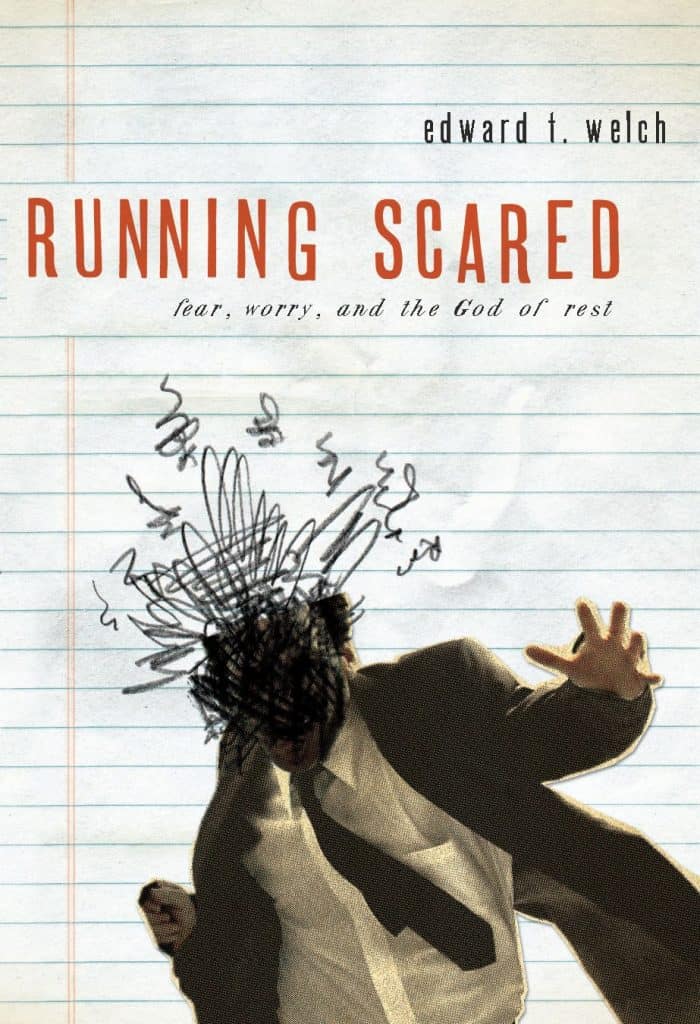⏱️ Estimated Reading Time: 4 min read
The greatest help the believer has to their struggle with fear or worry is the God of rest and peace. In Running Scared, Ed Welch seeks to apply the truths of Scripture to our fears in specific and detailed ways. The broad approach to fear this book takes means it will be applicable to us all, and yet its specificity is its greatest benefit. While introducing principles that apply to all anxieties, Welch gives us multiple chapters on several common specific fears. This focus adds to the value of this work.
The book’s two parts seem basic enough. Part one introduces “Initial Observations.” Here he speaks to some of the general principles and realities of anxiety. He comments on its ubiquity and attempts to help us think about the reality of worry and the ways in which it can cross into sinful or controlling responses. He also points out that worry “speaks” to us, it says things. It speaks about both realities of existences, and it reveals what we love and value. This second factor is key for discerning how we need to respond to our fears.
Part two turns, then, to direct our attention to what God says to our fears. If worry speaks to us, God speaks more loudly, compellingly, and truthfully. Part two “adds the glasses of Scripture to the study of fear and anxiety” (57). Utilizing the story of God’s provision of manna to the people of Israel grumbling in the wilderness, Welch provides a framework for thinking about God’s response to our worries. He points out both God’s provision, and, more interestingly, that God provides even when Israel isn’t seeking Him. It’s a reminder of God’s grace in the face of our sin.
Under part two Welch identifies three common fears to take time and space to specifically address. He spends six chapters speaking to our fears about finances and possessions. Three chapters are devoted to addressing the fear of man (though Welch’s book When People are Big and God is Small does a more thorough job of addressing this subject). Finally, four chapters address the fear of death, pain, and judgment. His attention to these specific fears makes this book helpful. Most books speak to generalized anxiety, and Welch speaks to that too. The principles he outlines for us as we consider how to approach fear, and the reminders he grants us in chapters 22-30 at the end of the book also add to this value. But his ability to then take those principles and apply them in specific ways to real worries is invaluable.
Running Scared gives us both the big picture understanding we need to think about anxiety in general, and the specific application we need to tangible wrestle our real worries. This book is a fantastic exploration of God’s promises and encouragements to us regarding fear and worry. Welch is a good counselor who never simply says, “It is a sin to worry so stop it.” He is sensitive to the legitimacy of many of our concerns. He is also sensitive to the struggle to put away anxiety. He is sensitive, in part, because he knows this struggle personally and shares his own temptations to worry with us the readers. He gives us great expositions of Scripture to highlight the context of God’s commands against worry, but he also invites us to see this God more clearly. God’s commands are words of hope in light of who He is, and Welch wants us to see that more clearly than we see our concerns. He does a compelling job.
I appreciated this book and commend it to both counselors and those personally struggling with worry. It will take some time to read. Its length may be intimidating to some readers, but it is a highly accessible work geared for the average worrier.




